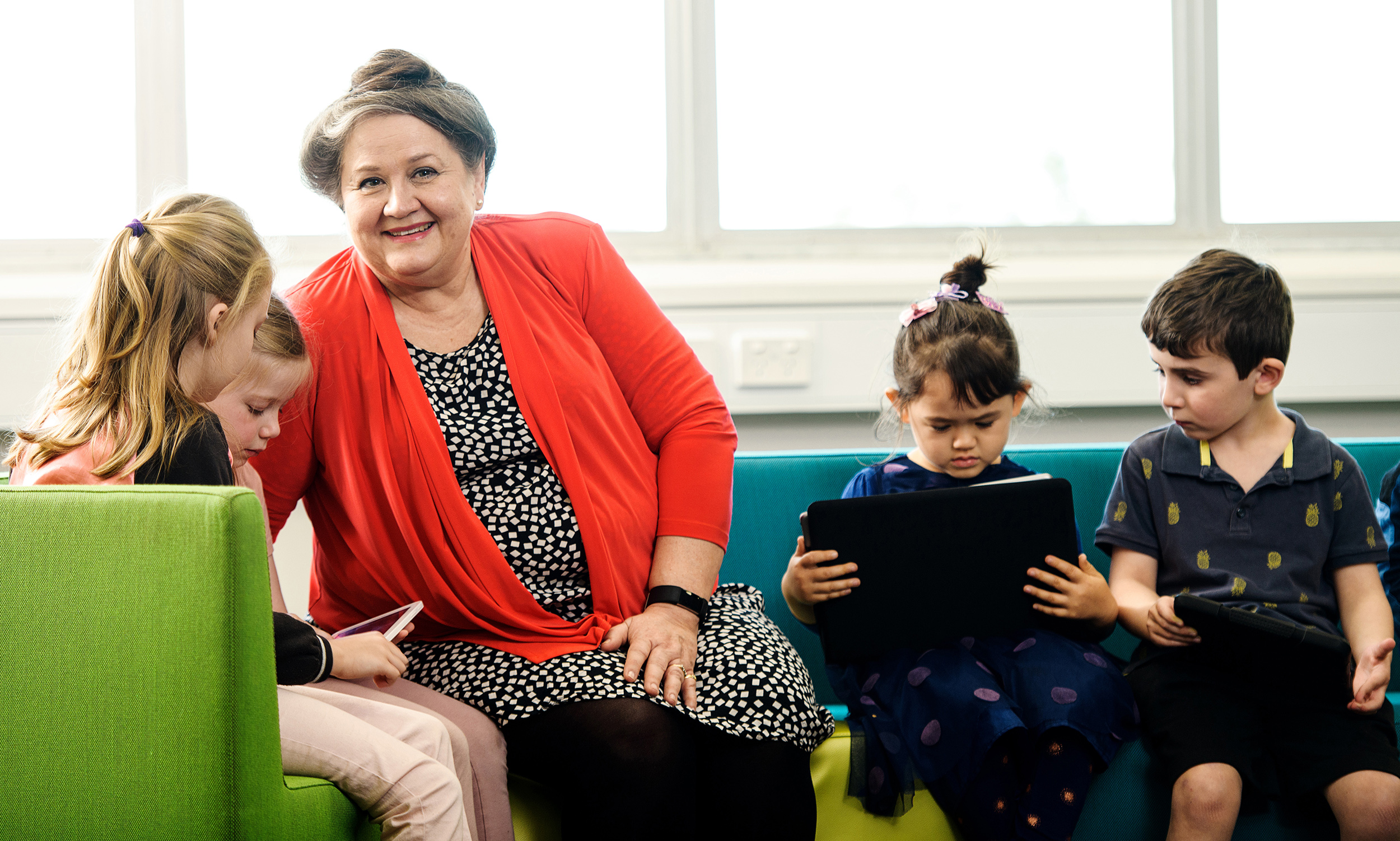
QUT will lead international research documenting what life is like when born into the digital age.
The Federal Minister for Education Dan Tehan has announced $34.9 million for the establishment of an Australian Research Council (ARC) Centre of Excellence for the Digital Child to be based at QUT.
QUT Vice-Chancellor and President Professor Margaret Sheil said she was delighted with the announcement, which was testament to QUT’s history in developing cutting-edge education research and the university’s interest in the impact of technology on the future.
Researchers from Australian universities collaborating with QUT in the new Centre are Curtin University, Deakin University, Edith Cowan University, University of Queensland and University of Wollongong.
In total, the Centre has 33 national and international academic and industry partners. Together they will provide the Centre with an additional $32.2 million in cash and in-kind support.
Director of the new Centre QUT Professor Susan Danby said it was a global first that would focus on children from birth to eight years of age with a detailed seven-year research program, including a longitudinal family cohort study with 3000 families.

“No other centre considers the digital child from birth. Our vision is to ensure children growing up in the digital age are healthy, educated and connected,” said Professor Danby, from QUT’s Faculty of Education.
“The Centre will provide evidence-based research around not only the risks but also the many opportunities and innovations provided by digital technologies that can benefit children and their futures.
“A child’s digital footprint begins even before birth, through data generated by health and educational records, as well as social media and the many young children’s toys connected to the internet, with activities and preferences tracked by commercial entities.
“And so the research will involve government and non-government agencies, industry here and overseas, policy-makers, philanthropic groups, as well as children and their parents.
“There are conflicting national guidelines and advice about many digital technology issues and the Centre aims to provide authoritative information to guide families, educators, governments and other authorities.”
Professor Danby said the Centre would bring together academics from Australia, the United Kingdom, Europe, the United States, and South Korea whose research spans diverse disciplines, from education, health, computer science, engineering, psychology, and digital technologies to media and communication.

The three key research areas the Centre will focus on are:
- Health: balancing risks of using digital technology against benefits, such as access to knowledge, social interaction, sleep and physical activity, relaxation and entertainment.
- Education: using digital technologies to optimise learning and develop engaging and thought-provoking new technologies.
- Connectedness: balancing social and knowledge connections in the digital world against risks of surveillance, infringements of privacy and children’s rights.
“The Centre will deliver and disseminate evidence-based research to optimise children’s use of digital technology; provide recommendations for policy-makers and curriculum development to enable child-directed digital learning, participation and enjoyment; guidelines and resources for parents, educators and communities about safe and effective digital practices; and, technological innovations that support children’s digital engagement,” Professor Danby said.
“The Centre will also provide professional development programs for those working with children and build research capacity with high-quality graduates and early career researchers.
“Research results and guidelines will be released progressively throughout the life of the Centre.”
Professor Danby said QUT’s new Peter Coaldrake Education Precinct would house a children’s technology space where families and children would participate in the research on their use of technologies. Another children’s technology space will be an extension of the existing Early Start Discovery Centre at the University of Wollongong.
Researchers will work with start-ups and technology providers to test prototypes and gather feedback from children at these research hubs.
Federal Member for Brisbane Trevor Evans said the outcomes of the Centre would inform public policy across a diverse range of areas from the common questions families ask about the impacts of digital technologies on young children, privacy, security and safety to health, education and families’ policy.
The ARC Centre of Excellence for the Digital Child universities and partners are:
Australian Universities: QUT; Curtin University; Deakin University; Edith Cowan University; University of Queensland; University of Wollongong.
International Universities: California State University (USA); Erikson Institute (USA); Gyeongin National University of Education (South Korea); Catholic University of the Sacred Heart of Milan (Italy); Catholic University Leuven (Belgium); Dublin City University (Ireland); London School of Economics and Political Science (UK); Oxford Internet Institute; University of Oxford (UK); University College London (UCL); University of Oslo (Norway); University of Sheffield (UK); University of Wisconsin-Madison (USA); Uppsala University (Sweden).
Partner Organisations: Australian Association for Research in Education; Australian Council on Children and the Media; Australian Human Rights Commission; Child Australia; Early Childhood Australia; Eat More Pixels; eSafety Commissioner; Google Australia; Kinderling Kids Radio; Lego Australia; Media Centre for Education Research Australia; Playgroups WA; SBS; Scitech Discovery Centre; Springer Nature Australia; State Library WA; The Creche and Kindergarten Association; The Smith Family; Queensland Government – Department of Education.
QUT Media contact:
Rose Trapnell, 0407 585 901 or media@qut.edu.au


